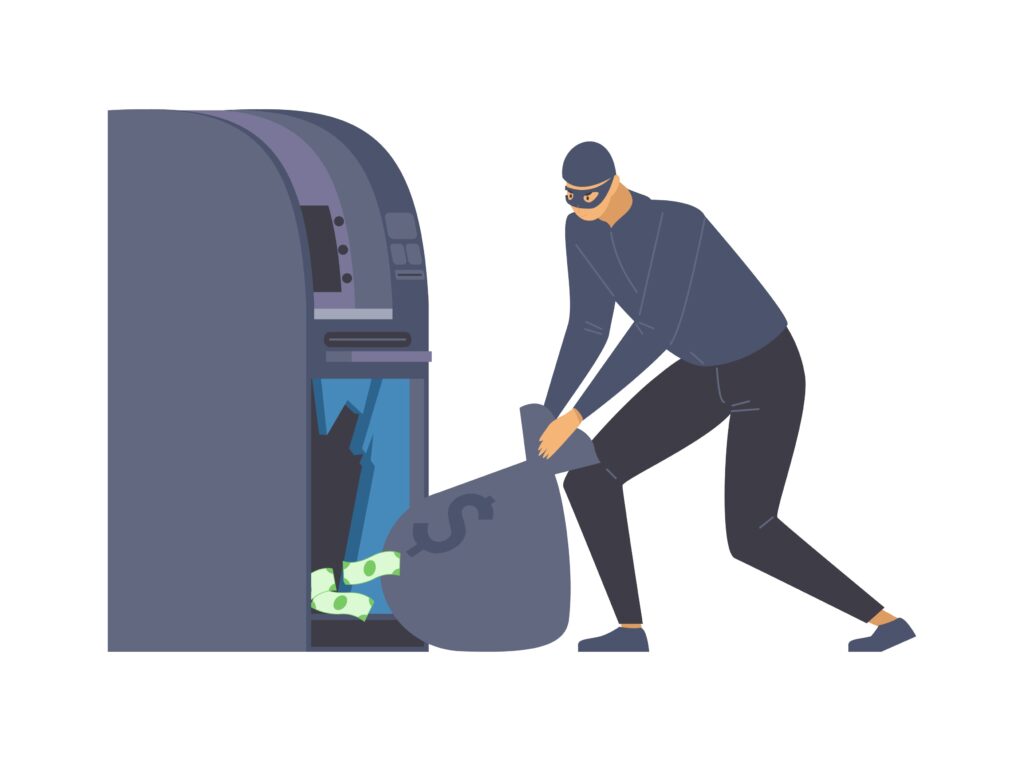
Theft and larceny are two crimes that tend to get intertwined. If you’ve watched enough crime shows and movies, you’ll have recognized this. But, ever wondered what the distinctions between the two actually are? The differences between larceny and theft vary from jurisdiction to jurisdiction and state to state.
According to the FBI, larceny-theft, as a crime involving wrongful taking and obtaining someone’s property, is the most common property crime in the US. You’ve probably noticed that according to their stats, larceny and theft aren’t separated into individual categories.
These variations of property crime make it extremely important to differentiate the two, so consulting with an experienced Connecticut bail bonds agency for larceny and theft issues is your safest bet. Are the terminologies really interchangeable? Read on to find out!
What is the difference between theft and larceny?
Theft is a term that encompasses various types of property crimes. These include identity theft, theft of services, criminal stealing, as well as of personal property. On the other hand, larceny can be described as one type of stealing under the broader category of theft. It’s defined as wrongful taking and carrying away someone’s personal property.
However, whether someone is charged with larceny or theft is determined by the state where the crime is committed.
Definitions and distinctions
Regardless of the state where you reside, if someone has taken your property without permission, they’ve committed the act of theft. Depending on how they’ve taken your property, as well as the state in which the crime occurred, they may have committed larceny.
While theft is used as a general term that includes not just taking someone’s property without their will, but also identity theft, theft of intellectual property, or theft of services. When larceny and theft are used as two separate crimes, larceny is typically confined to the theft of physical items. On the other hand, theft is a much broader crime that includes a wide range of property stealing.
Different jurisdictions and court systems
With larceny being a form of theft, many jurisdictions offer no discernment between property crimes of theft and larceny. However, court systems tend to be more precise, identifying theft with regards to what kind of property crime has been committed. For example, taking of physical property is usually classified as larceny, while intellectual, identity, or monetary as theft.
Degrees of the crime
Determining the degree and whether it’s considered a “petty” or “grand” type of crime is based on the crime and how it’s classified.
Whether a property crime is determined to be “petty” theft or “petty” larceny will differ from state to state and jurisdiction to jurisdiction. Degrees of larceny and theft vary, but “petty” typically refers to stolen property of low value. Likewise, “grand” larceny or theft applies to crimes where the value is higher, or the manner in which it was carried out is more severe. Ultimately, “grand” crimes come with more significant legal consequences.
Connecticut law classifies theft as the wrongful taking or obtaining of someone’s property. It’s referred to as larceny, and it includes theft of property or services, shoplifting, embezzlement, extortion, receiving stolen property, and obtaining property by fraud.

Reach out to the best Connecticut bail bonds company for larceny and theft
BailCo Bail Bonds Manchester is a committed agency providing bail bond services in Connecticut. Our team of dedicated pros is at your service 24/7, whether you’re situated in Greater Hartford or another part of the state. If you’ve been arrested for larceny or another crime, rest assured you have the best bondsmen and women on your case. Whatever your inquiry, we’re just a phone call away!
